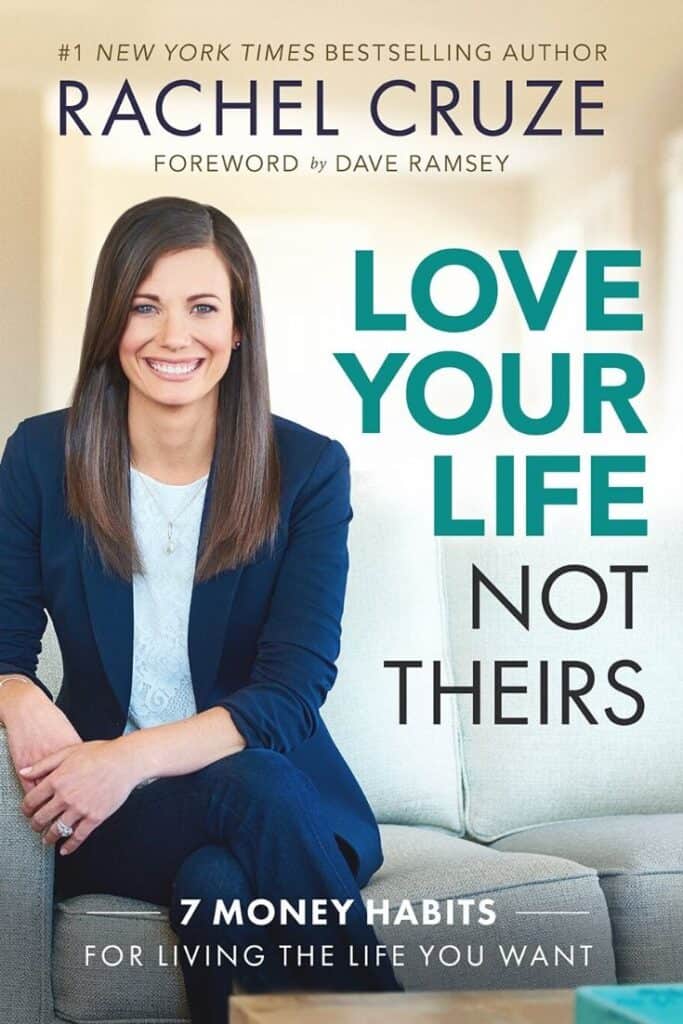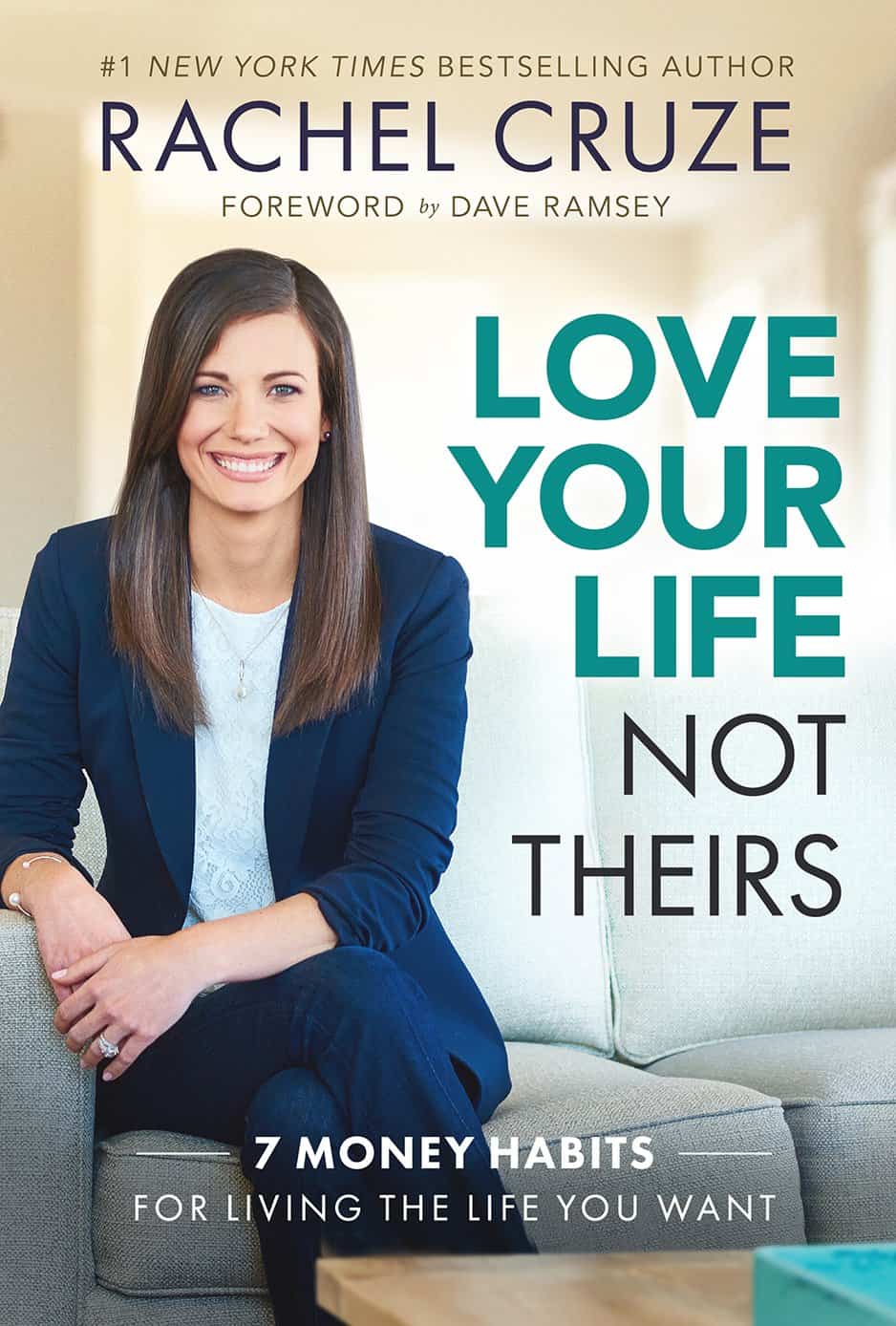Head's up, there could be affiliate links ahead!
I picked up the audiobook Love Your Life, Not Theirs by Rachel Cruze because the title intrigued me. I love money books that go beyond the numerics of financial success and talk about the mindset and juicy psychological piece.
I fundamentally disagree with many of her points, but here’s where we see eye-to-eye
I love Rachel’s idea of social media “comparisonitous” (yes, I made that word up). I try really hard (and often fail) to avoid comparing my life to the way people portray their picture-perfect worlds on Facebook and Instagram.
This is a conscious practice because it’s really easy for me to get down on myself for not living a Pinterest-worthy life.
While this is a problem for many of us in all areas of life, Rachel addresses it from a financial standpoint. Her message is simple: “keeping up with fancy-but-broke people is the fastest way to financial ruin”. Preach it, sister! I couldn’t agree more.
I love how she frames #blessed as the official hashtag of “look at me” posts. This is so true! Let’s be real… your $759 per month car payment on a teacher’s salary isn’t #blessed, it’s #stupid.
Keeping up with fancy-but-broke people is the fastest way to financial ruin.But here’s where Rachel and I diverge in our opinions….
Let’s start with credit cards. She simply doesn’t use them and recommends you don’t either.
This is where I start scratching my head. I use my Chase Sapphire card for pretty much anything I spend money on for a lot of great reasons:
- It’s easy to track where my money goes
- It’s insurance against sketchy sellers (which I was able to take advantage of this week)
- I get free travel insurance if I have to cancel a trip due to sickness, weather or a host of other reasons.
- I get free auto insurance when I rent cars (which can cost as much as the rental car)
- I collect points up the whazoo to spend not just on flights, but also hotels and other things that I would have every intention of redeeming.
Now credit cards do require a certain level of financial maturity, but I also know that the credit mistakes I made as a kid, informed my good credit habits today.
Credit isn’t for everyone, that’s for sure, but if you can pay off your balance every month in full (as I do, and I’m she could too), then there’s a world of benefits you can reap from them. Discounting credit cards before you give yourself a chance to see if you can manage them responsibly is a wasted opportunity. A huge one.

Credit Card Points: You’re not using them, so why bother?
Rachel claims that the 14 million points that go unredeemed every year have everything to do with credit card users that just somehow ignore or forget about them.
While it’s true that around 30% of credit card users never cash in their rewards, there’s another 70% of us out there that are optimizing them as much as possible. Your best bet is to consolidate your points to one really good card (like Chase Sapphire) and use those babies up.
You’re better off making your credit score non-existent.
What the what? Rachel suggests that it’s a good thing to not have a credit score, period. Not a bad one, just not one at all. She suggests, there’s no downside to not having a credit score, and that you can even buy a house without one.
Really, Rachel? Where do you live that you can buy a house for cash? Maybe rural Nashville, but that’s about it.
Let me tell you as someone who came to this country with zero credit history, not only was it was a colossal pain in the ass to get anything from a cell phone to running water, I had to put extra deposits on EVERYTHING, so my out of pocket costs moving here was drastically increased because of my lack of credit history.
Now, keep in mind, I had a great job, money in the bank and a stupendous credit history in Canada, where I had lived to that point, but apparently, that has no bearing on your ability to pay your bills here in the US.
So would I make having zero credit score a goal?
She also broadens the range of thinking when it comes to personal finance. Fringe concepts (and yes, I think some of these ideas are out there), can help readers think critically about their own behaviors. As we know, it’s called “personal” finance for a reason 🙂
So rock on with your bad self, Rachel Cruze! Someone’s got to be out there on the edge. On that note, I’m off to see what I can do with all those airline miles I’ve racked up!






Troy @ Bull Markets says
I think social media is somewhat of a lie. People only post the best part of themselves on Instagram, but you never see the bad parts.
CM says
Very true, but could you imagine what it would be like if people shared only the worst parts of themselves? It would be even worse! I think you just have to take it with a grain of salt.